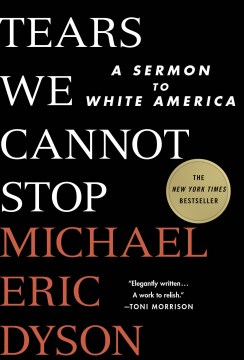A call for change in the United States argues that racial progress can only be achieved after facing difficult truths, including being honest about how black grievance has been ignored, dismissed, and discounted.
 In the wake of yet another set of police killings of black men, Michael Eric Dyson wrote a tell-it-straight, no holds barred piece for the New York Times on Sunday July 7: Death in Black and White (it was updated within a day to acknowledge the killing of police officers in Dallas).
In the wake of yet another set of police killings of black men, Michael Eric Dyson wrote a tell-it-straight, no holds barred piece for the New York Times on Sunday July 7: Death in Black and White (it was updated within a day to acknowledge the killing of police officers in Dallas).
The response has been overwhelming. Beyonce and Isabel Wilkerson tweeted it, JJ Abrams, among many other prominent people, wrote him a long fan letter. The New York Times closed the comments section after 2,500 responses, and Dyson has been on NPR, BBC, and CNN non-stop since then.
Fifty years ago Malcolm X told a white woman who asked what she could do for the cause: nothing. Dyson believes he was wrong. In Tears We Cannot Stop: A Sermon to White America he responds to that question.
If we are to make real racial progress, we must face difficult truths, including being honest about how black grievance has been ignored, dismissed or discounted. As Dyson writes, "At birth you are given a pair of binoculars that see black life from a distance, never with the texture of intimacy. Those binoculars are privilege; they are status, regardless of your class. In fact the greatest privilege that exists is for white folk to get stopped by a cop and not end up dead."
"The problem is you do not want to know anything different from what you think you know. You think we have been handed everything because we fought your selfish insistence that the world, all of it - all its resources, all its riches, all its bounty, all its grace - should be yours first and foremost, and if there's anything left, why then we can have some, but only if we ask politely and behave gratefully."
Located in Hunt Valley, Maryland and part of Baltimore County, Greetings & Readings of Hunt Valley is the premier independent gift store in Maryland. Fiction, fashion and fun.
The response has been overwhelming. Beyonce and Isabel Wilkerson tweeted it, JJ Abrams, among many other prominent people, wrote him a long fan letter. The New York Times closed the comments section after 2,500 responses, and Dyson has been on NPR, BBC, and CNN non-stop since then.
Fifty years ago Malcolm X told a white woman who asked what she could do for the cause: nothing. Dyson believes he was wrong. In Tears We Cannot Stop: A Sermon to White America he responds to that question.
If we are to make real racial progress, we must face difficult truths, including being honest about how black grievance has been ignored, dismissed or discounted. As Dyson writes, "At birth you are given a pair of binoculars that see black life from a distance, never with the texture of intimacy. Those binoculars are privilege; they are status, regardless of your class. In fact the greatest privilege that exists is for white folk to get stopped by a cop and not end up dead."
"The problem is you do not want to know anything different from what you think you know. You think we have been handed everything because we fought your selfish insistence that the world, all of it - all its resources, all its riches, all its bounty, all its grace - should be yours first and foremost, and if there's anything left, why then we can have some, but only if we ask politely and behave gratefully."
Located in Hunt Valley, Maryland and part of Baltimore County, Greetings & Readings of Hunt Valley is the premier independent gift store in Maryland. Fiction, fashion and fun.

No comments:
Post a Comment